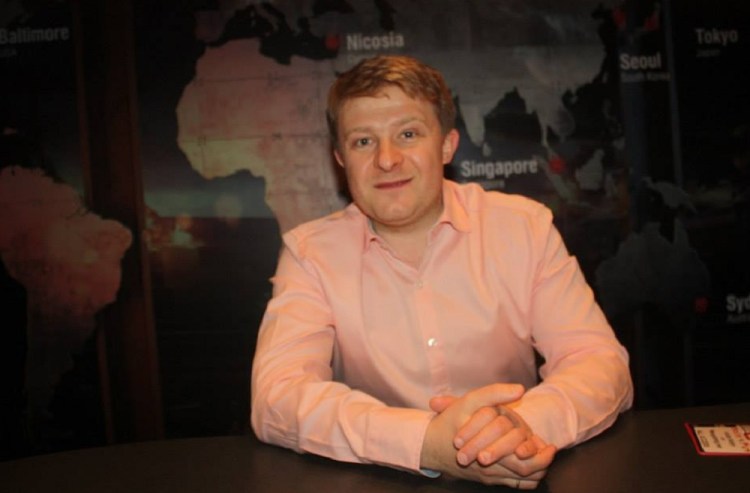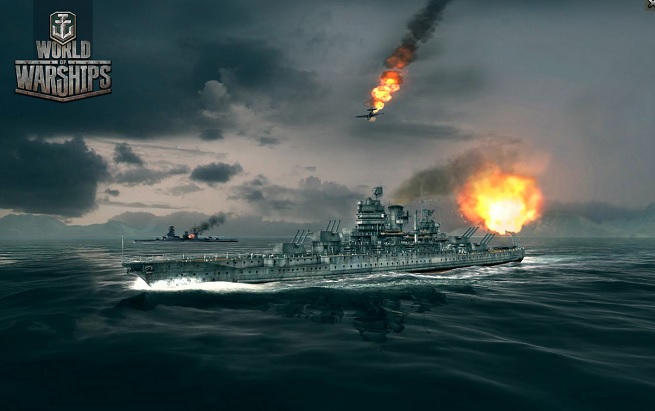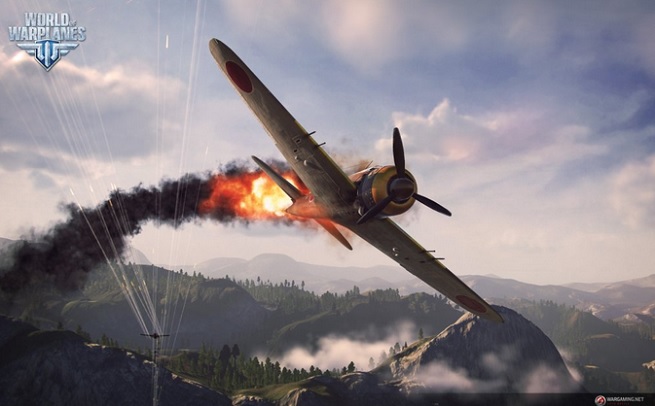Kislyi: If you type “tanks” into the App Store, you’ll see quite a lot of icons, and there are some awfully stupid things behind them. But people will download that stuff just to see what’s going on.
To give you an idea of how the original game is still doing, a month ago, we had 1.1 million [concurrent users] in Russia. That’s about 2 percent of the male population in Russia playing at the same time, with a four and a half-year-old game. The game isn’t dying. It’s growing on every front.
GamesBeat: How do you allocate those 3,000 people you have? How many are on Tanks, and how many are on new projects?
Kislyi: Approximately 10 percent are in administration and that kind of thing. Forty-five percent are in development, and 45 percent are in publishing. In Minsk we have 1,500, and in Kiev something like 250. They’re mostly working on Generals and Warplanes. St. Petersburg is the World of Warships team. They’re about 200. Paris has about 120 publishing people, maybe 150. In Berlin we have a German marketing team of five or six people. In Chicago we have more than 100 people now at what used to be Day 1. San Francisco is 120-something doing publishing. Seattle has 60 people. Chris Taylor is prototyping and doing some experiments with our next big thing. A small part of Day 1 is in Baltimore, about 12 people. In Sydney we have 80 people now, doing more and more of the BigWorld stuff that’s important to so many projects now. Then we have relatively small teams doing global operations in places like Thailand, Taiwan, the Philippines. That’s 50 or so all in all.
GamesBeat: Do you have any thoughts on how to do well in Asia? Do you think your style of military games will catch on there?
Kislyi: We’re cash-positive there, I believe. There’s not many Western companies that have stormed into the Asian market and conquered it in a day. That just doesn’t happen. It’s a different culture, a different economy, a different legal system, different tastes. We’re a very cosmopolitan studio, though, and that helps us.
There were challenges on the ground. But you always have to keep moving to get to your destination. You have to start hiring people and doing stuff, or you’ll never learn what to do. We made our share of mistakes. But a lot of those issues we’ve managed to polish off and bypass now.
GamesBeat: Have you faced any disruption in Kiev because of the political situation?
Kislyi: There was that week where there was shooting and stuff. Our office isn’t far from the center of the city. We stopped working for a couple of days, for obvious security reasons. Now we’re all back on track, though. Certainly, we don’t like to see this kind of thing happening, but we’re not involved in politics. We make games. World of Warplanes is back on track.
We definitely have a plan B and a plan C in case anything even worse happens. We did relocate some people right away, and we have plans to relocate pretty much everyone in the worst-case scenario.
GamesBeat: Did you delay your event there? I think you had something scheduled.
Kislyi: We had an internal development event that we’re moving to Cyprus now. But that’s normal. That’s life.
GamesBeat: It’s interesting to see how deliberate the pace is. You guys are very disciplined. You’re taking your time. It’s different from a lot of other mobile companies. I don’t see a lot of consistency yet in how mobile game companies operate. Some are out to publish, publish, publish. They get games done with 10 people. This is a rare case in the industry, still.
Kislyi: We’re making a very big investment. I think we’ve invested more than in the initial World of Tanks here, or something comparable. That’s even considering the assets we got for free. It’s a very investment-heavy project for us. It’s not easy to make what you’re looking at here.
GamesBeat: Strategically, though, is it worth it? The whole industry seems to be shifting its weight toward mobile. There’s an expectation that online and mobile could be 60 percent of the business in four years.
Kislyi: Again, let me repeat myself. This is very risky. It could go wrong in so many ways, because it’s not an Angry Birds. It’s not a simple, intuitive, quick kind of game. But I think this is the future. Sooner or later it will come around, and we’re the first in line to do a big, sophisticated online game on mobile.
VentureBeat's mission is to be a digital town square for technical decision-makers to gain knowledge about transformative enterprise technology and transact. Learn More





![Reblog this post [with Zemanta]](http://img.zemanta.com/reblog_e.png?x-id=9cfa7409-76ad-465f-acbc-dfb93559b5e0)
